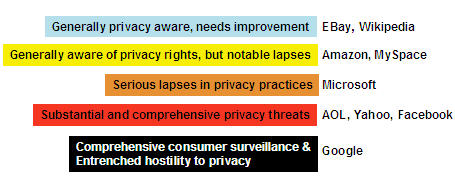On Wednesday Sept. 5 2007, Apple made two major announcements: A new iPod line and a $200 price reduction on its 8GB iPhone (the 4GB is being phased out). The former was overshadowed by the latter. Apple received “tons” of negative feedback from its customers who had bought the iPhone at the original price of $599 just two months ago when it was first introduced.
At first Steve Jobs, Apple’s CEO, attempted to shrug off the criticism saying: “If they bought it a month ago, well, that’s what happens in technology.” But for those who had just bought the phone that same day: “they should go back to where they bought it and talk to them.” However after the griping continued Jobs apparently had a change of heart. The company is making the right decision by lowering the iPhone price, he said, but needs to “do the right thing for our valued iPhone customers.” He issued a statement on the company’s website in an attempt to appease the iPhone faithful.
- First, I am sure that we are making the correct decision to lower the price of the 8GB iPhone from $599 to $399, and that now is the right time to do it. iPhone is a breakthrough product, and we have the chance to ‘go for it’ this holiday season.
- Second, being in technology for 30+ years I can attest to the fact that the technology road is bumpy. There is always change and improvement, and there is always someone who bought a product before a particular cutoff date and misses the new price or the new operating system or the new whatever.
- Third, even though we are making the right decision to lower the price of iPhone, and even though the technology road is bumpy, we need to do a better job taking care of our early iPhone customers as we aggressively go after new ones with a lower price. Our early customers trusted us, and we must live up to that trust with our actions in moments like these.
He then offered $100 store credit to those who had purchased the iPhone at the original price and were not eligible for any other discounts or rebates. Under Apple’s refund policy, customers who bought an iPhone within 14 days of the price cut can get a refund of the price difference if they have the original receipt. Those who haven’t opened the phones can return them for a full refund.
“We want to do the right thing for our valued iPhone customers. We apologize for disappointing some of you, and we are doing our best to live up to your high expectations of Apple.”
Investors were also rattled by the news, sending Apple’s shares down a total of more than 6 percent over the past two days, a drop that has wiped out about $8 billion in shareholder wealth. Apple’s stock closed Thursday at $135.01.
Now for the Good News:
The new iPOD touch, it comes in two sizes 8GB ($299) and 16GB ($399) and has the look and feel of the iPhone with some new features.
-
Multi-touch interface
iPod touch features the same multi-touch screen technology as iPhone. Pinch to zoom in on a photo. Scroll through your songs and videos with a flick. Flip through your library by album artwork with Cover Flow.
-
Wi-Fi (802.11b/g)
Browse the web using Safari and watch YouTube videos on the first iPod with Wi-Fi built in. Shop the iTunes Wi-Fi Music Store from anywhere. Browse or search to find the music you’re looking for, preview it, and buy it with just a tap.
-
3.5-inch widescreen display
Watch your movies, TV shows, and photos come alive with bright, vivid color on the 320-by-480-pixel display.
This one looks like it might make a great Christmas present! In fact that seems to be Apple’s strategy with announcing the new iPod and lowering the price of its iPhone. It is gearing up for the holiday season. Anybody interested??



































